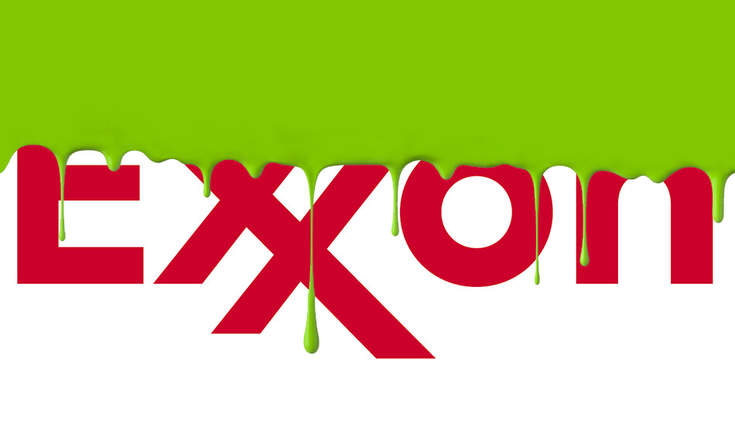How Sincere Is ExxonMobil?

Discussion of hydrogen has been around since the early 1970s, and it’s made very little progress in nearly half a century. That’s because of a combination of factors that favor electric vehicles:
• The fuel-delivery infrastructure would have to be completely redone
• The low efficiency of separating out the hydrogen from water or methane in the first place
• The expense and fragility of fuel cells
• Hydration, meaning that fuel cell systems don’t operate well in sub-zero temperatures, low humidity environments and high operating temperatures
• Storage issues
Two things are possible: a) Exxon is unaware of all this, or b) this is totally disingenuous greenwashing, designed to distract and mislead the public.
Your call.

Craig,
Why do you keep repeating old nonsense about technologies you don’t happen to favour?
What is it with you and Exxon ? Exxon is not alone in developing Hydrogen Fuel Cell technology as a viable alternative to gasoline and oil. Exxon isn’t even leading the pack, Exxxon is just one of a myriad corporations developing HFC technology.
There’s no problem storing the vast amounts of hydrogen already in use by more than 15,000,000 users around the world, nor is Exxon alone in developing HFCV technology.
Hydrogen fuels cells are not “fragile” and have been so for more than 40 years. (you really should do more research than just a glance at Facebook !)
None of the reasons you’ve posted are valid, and all would apply equally to LPG or Propane.
The only real deterrent to investment in wide scale HFCV development, is the current low price and plentiful supply of gasoline, diesel, natural gas, LPG etc.
Toyota, Hyundai, Daimler, Shell, Chevron, Linde and a host of major corporations are developing and manufacturing fuel cell technology, especially for industrial use.
As KPMG points out in the 2017 KPMG Annual International Revue of Environmental Technology;
“We are now, more than ever, seeing strong interest in hydrogen globally. Hydrogen has an array of potential applications, including power generation, zero-emission fuel cell transport (cars, buses, trucks, trains, ships, forklifts, aerospace), energy storage, and industrial uses.
Interest is coming from governments who want to be educated about the scale and nature of opportunities, as well as the policy signals that will create a vibrant investment environment and from private sector players.
They are investing heavily to diversify their businesses, become part of the disruptions in energy and transport markets, and help meeting climate targets. All interested parties see hydrogen’s versatility and storage potential over longer periods as its main advantages as an energy carrier. This means reliability of supply. A more holistic, whole-supply chain focus means governments and industry are also approaching hydrogen as a significant mechanism to boost economic development, investment and job creation.
At a global level, many of our clients are showing a growing interest in hydrogen. The Hydrogen Council, a global initiative of nearly 40 leading energy, transport and industry companies, forecasts a US$2.5 trillion hydrogen market by 2050, with 30 million jobs created and 6Gt of annual CO2 abatement.
Japan has been leading the charge towards a hydrogen economy with support from both government and industry. Japan’s Basic Hydrogen Strategy released just after Christmas 2017, reveals the top-down thinking around creating demand and supply for hydrogen, simultaneously. It is a good example of how to unpack spill-over benefits in innovation and industry from a relatively fragile energy security position backed by a commitment to reduce emissions.
The International Energy Agency has also identified hydrogen as instrumental in diversifying the global energy mix and reducing emissions. Shell predicts hydrogen will be a material energy carrier and important to industry and the transport sector after 2040. By the end of the 21st century, it is envisaged that hydrogen could supply a quarter of all transport energy demand.
Clearly, these things only become real when they are followed by investment. We are seeing action on this front: China wants to transform Wuhan into a ‘Hydrogen City’ by 2025 with up to five world leading hydrogen enterprises, 100 hydrogen-fuelling stations, and annual production of hydrogen fuel cells exceeding $20 billion. Meanwhile, Shell and ITM Power are building the world’s largest 10MW hydrogen electrolysis plant at Rhineland refinery in Germany, where hydrogen will be used for the processing and upgrading of products. They are also building a new hydrogen refuelling station at one of the UK’s busiest service stations, with hydrogen being produced on-site and co-existing with petrol and diesel pumps.
Leeds, in England’s midlands, is in the process of exploring the conversion of the existing natural gas network to 100 percent hydrogen with minimal disruption to consumers. Fuel Cells and Hydrogen Joint Undertaking is a public-private partnership supporting initiatives in advancing fuel cells and hydrogen across Europe, with over $2 billion in funding earmarked for projects to 2020. Hyundai is the leader in South Korea with its Nexo FCV’s driving range of 800km.
The car and fuel cell technology was showcased at the recent Winter Olympics in PyeongChang. Germany is procuring 14 fuel cell hydrogen Coradia iLint trains from Alstom. They have a range of up to 1,000 kilometres, and can reach a maximum speed of up to 140 km/h and will replace diesel trains, meaning no emissions. And in the US, hydrogen truck startup Nikola Motor is planning to build a $1.3 billion factory in Phoenix whilst Amazon and Walmart are introducing fleets of hydrogen fueled forklifts across their networks of warehouses.
KPMG’s Automotive Executive Survey 2018 showed the car industry slightly favouring FCVs over battery electric vehicles (EVs). FCVs offer the convenience of longer range, quicker charging and, for the incumbent players, a similar supply chain. We believe both EVs and FCVs will prevail and complement each other”.
Okay, so it’s not just Exxon but some of the world largest and most successful corporations who are interested in HFC technology, but hey, what do they know ?